A ferret diet also needs to contain calcium – feeding just meat without calcium can lead to a softening of the bones.
If you’re wondering what ferrets can eat, the best way to provide food for ferrets that contains everything they need to be healthy and happy is to choose a complete ferret nugget diet.
Nuggets are also clean, convenient and easy to feed and do not attract flies as can happen with fresh meat, which can also contain harmful bacteria.
What should a ferret's diet consist of?
Healthy ferret food should include:
- Nutrition-packed nuggets – especially designed for ferrets, they provide the correct balance of protein (around 40%), calcium, fats, vitamins and minerals they need in each tasty bite.
- Fresh water – water bottles with a metal spout are ideal, but ferrets can also drink from a bowl – just make sure it’s a heavy, ceramic one that they can’t tip over.
- An occasional treat of ferret-safe fresh food, such as a little cooked chicken or half a boiled egg.
What meats can ferret's eat?
While some people advocate feeding ferrets raw meat, such as beef, to avoid the risk of disease, it’s recommended to cook meat thoroughly before offering it to your ferret. For example, a little cooked chicken will be enjoyed occasionally by your ferrets.
Importantly, ferrets need to feed throughout the day due to their high metabolic rate. For this reason, they need to eat little and often and have access to food at all times. Leaving meat in their environment can be messy and unhygienic.
By choosing a complete ferret nugget diet, you can safely leave food around your ferrets’ accommodation for them to eat at will. Ferret nuggets are produced via a process called thermal extrusion, where the ingredients are cooked thoroughly, ensuring that any harmful bacteria, such as salmonella, and viruses are destroyed. Feeding pellets as the main part of your ferret’s diet also help keep their teeth clean.
Can ferrets eat cat food?
High quality pet foods are carefully crafted to meet the nutritional needs of the animals they are designed for.
As well as high levels of protein, ferrets require high amounts of fats, higher than other pets such as cats and dogs. Not only that, dog food has too many carbohydrates and is just not suitable for the ferret digestive system.
Feeding your ferrets cat or dog food means they won’t get the correct balance of nutrients they need.
Quick tip
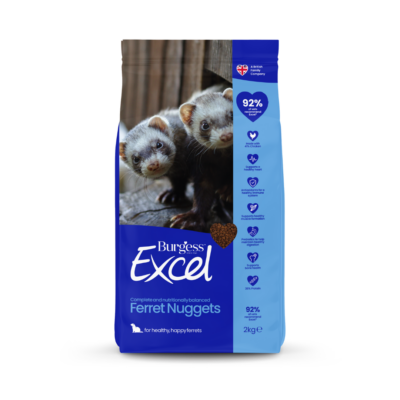
Excel Ferret Nuggets
What foods should ferrets avoid?
Wondering what human food ferrets can eat? Apart from a little cooked meat or half a boiled egg as a treat, ferrets should NEVER be given human foods.
Ferrets are well designed to digest fats and protein but struggle with large amounts of plant matter. In addition, ferrets can’t digest lactose (a sugar found in dairy products such as milk and cheese) and too much sugar can cause them serious health problems.
There are also a number of foods that are poisonous to ferrets, or that can cause health or digestive issues, including:
- Chocolate– as well as being high in sugar, chocolate contains theobromine, which is toxic to ferrets.
- Fruit– all fruits are very high in sugar. Grapes, raisins, sultanas and currants are toxic to ferrets.
- Vegetables– especially hard vegetables such as carrot, which can also block their digestive tract, and avocado, which is poisonous to ferrets.
- Dairy– ferrets lack the enzyme required to digest dairy products.
- Cooked bones– these can splinter and seriously damage your ferret’s digestive tract.
- Dog and adult cat food– these do not contain enough protein for ferrets.
- Xylitol– this sugar-substitute is also toxic for ferrets, so don’t assume something low-sugar is safe for ferrets.
If you’re not sure whether something’s safe for your ferrets to eat, it’s best avoided.
Chinchilla feeding plan
How I feed my ferrets?
How much ferret food should I feed my pets?
The average ferret will eat 5-7% of its body weight on a daily basis. However, the quantity of ferret food required differs from animal to animal and according to life stage. Follow the on-pack guidelines and feed between 15g and 25g per day, per ferret, depending on their size and activity levels.
For more ferret feeding advice, check with your vet. You can also call our expert team, available 9am-5pm, Monday to Friday, on +44 (0)1405 862241.
Why choose Burgess Excel for your ferret food?
Our complete nuggets for ferrets are the ideal way to feed your pets a high-protein, balanced diet. Made at our very own factory in the heart of Yorkshire, using only ingredients that meet our stringent specifications, it’s sure to become your ferrets’ favourite food.
Our ferret food is specially formulated with prebiotics, minerals and antioxidants to support the health of your pets.
Plus, if you order online you’ll get free delivery over £25.
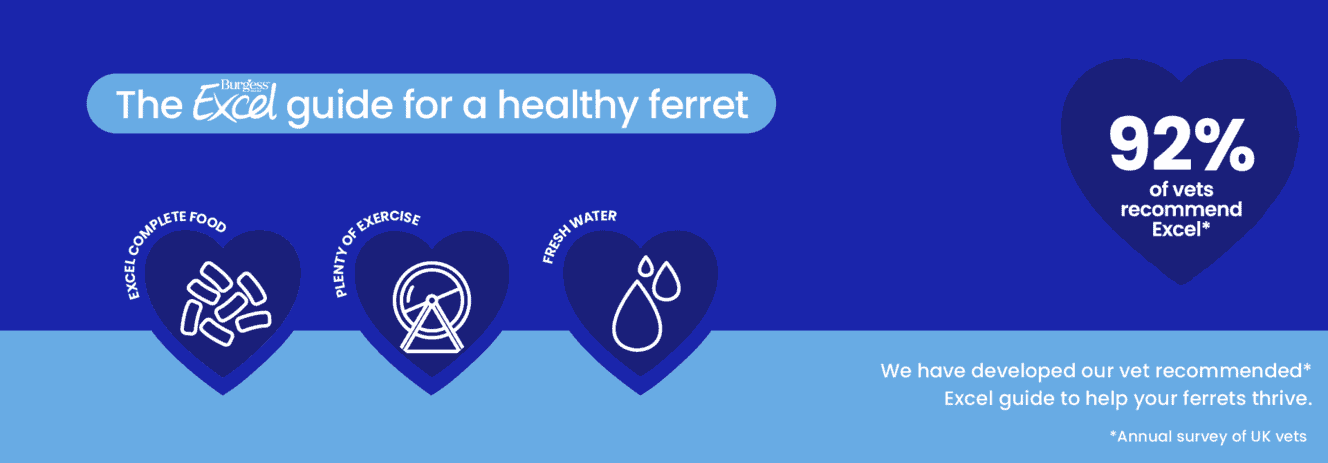
DON'T FORGET
Our Burgess Excel Range
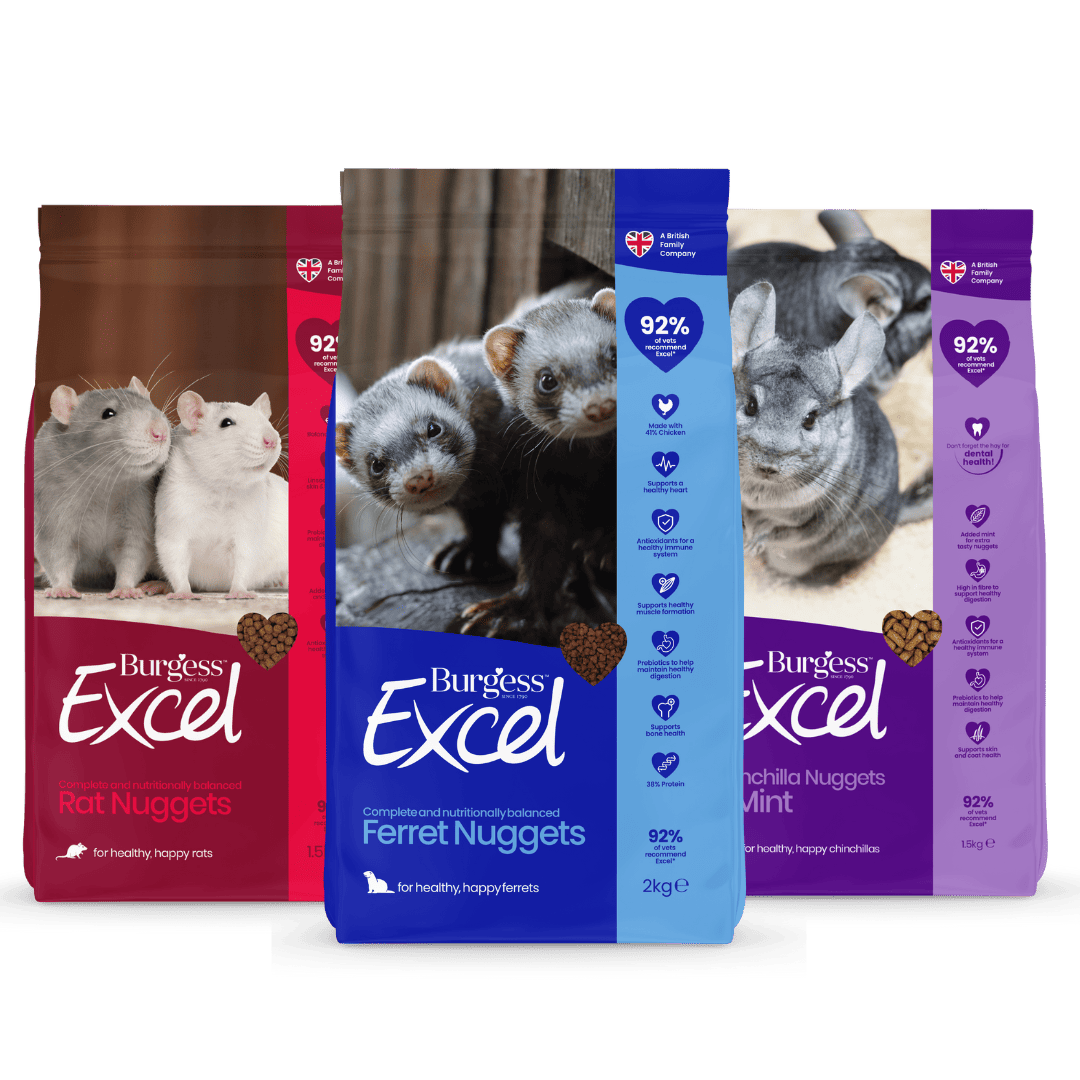

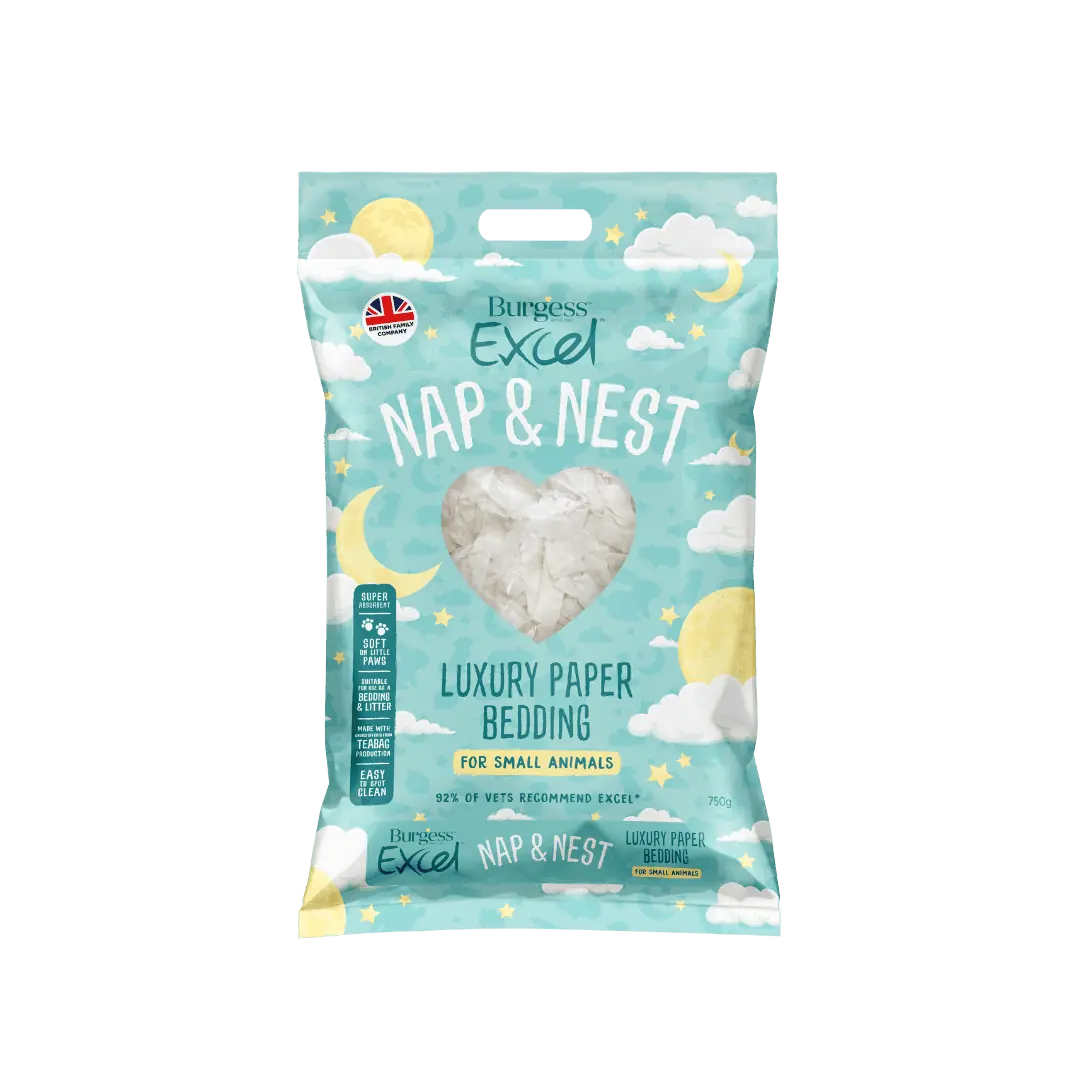
Transitioning to Burgess Excel nuggets

Do you need more advice?
If you’re at all unsure about the best way of feeding your ferrets or have any concerns about specific nutritional requirements, ask your local veterinary practice for advice.
You can get in touch with our customer care team who will respond in 3-5 working days. Our dedicated team of pet experts will help you make the right choice.
Are your ferrets Burgess ferrets? Join the Burgess Pet Club for exclusive offers and rewards.















